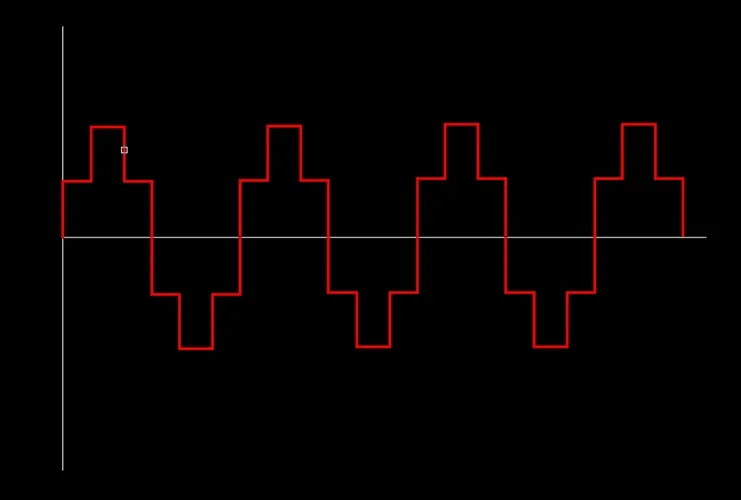Will a Modified Sine Wave Inverter Damage Your Laptop?
If you’re planning to power your laptop on the go—whether in a car, RV, or during a power outage—you’ve likely come across inverters. Among the different types available, modified sine wave inverters are popular due to their affordability. But a common concern among users is: will using a modified sine wave inverter damage your laptop? Let’s explore this topic in detail to help you make an informed decision.
What Is a Modified Sine Wave Inverter?
An inverter converts DC (direct current) power from a battery into AC (alternating current) power, which is what most household electronics use. Modified sine wave inverters produce a stepped waveform that approximates a pure sine wave but is less smooth and efficient. They are cheaper to manufacture and widely available, making them a common choice for basic power needs.
In contrast, pure sine wave inverters generate a smooth, consistent waveform that closely mimics the electricity supplied by utility companies. These are more expensive but are considered safer for sensitive electronics.
How Laptop Power Supplies Work
To understand whether a modified sine wave inverter can harm your laptop, it’s important to know how laptops handle incoming power. Laptops don’t run directly on AC power. Instead, they use an external power adapter (also known as a charger or power brick) that converts AC power to DC power suitable for the laptop’s internal components.
Most modern laptop power supplies are designed with built-in protection against minor fluctuations in voltage and waveform irregularities. They include components like rectifiers, capacitors, and voltage regulators that smooth out the incoming power, making them relatively tolerant of imperfect AC sources.
Potential Risks of Using a Modified Sine Wave Inverter
While many laptops can operate safely with a modified sine wave inverter, there are some potential risks to consider:
- Increased Heat Generation: The choppy waveform of a modified sine wave can cause the laptop’s power adapter to work harder, leading to excess heat. Over time, this may reduce the lifespan of the adapter or, in rare cases, cause overheating.
- Electrical Noise and Interference: Modified sine wave inverters can introduce electrical noise, which might interfere with audio output, touchpad sensitivity, or Wi-Fi performance. While this isn’t typically damaging, it can be annoying.
- Compatibility Issues with Some Devices: While most laptops are compatible, certain high-end models or devices with sensitive power management systems might not function optimally or could experience unexpected shutdowns.
- Efficiency Loss: Modified sine wave inverters are less efficient than pure sine wave models, meaning more battery power is wasted during conversion. This could lead to shorter runtime if you’re relying on a limited power source like a car battery.
When Is It Safe to Use a Modified Sine Wave Inverter?
In many cases, using a modified sine wave inverter with a laptop is perfectly safe. Here’s when you can consider it:
- If your laptop’s power adapter is well-built and includes robust filtering components.
- For short-term or occasional use, such as during travel or emergencies.
- If you’re using a reputable brand of inverter with overload and short-circuit protection.
To minimize risks, always ensure your inverter is appropriately sized for your laptop’s power requirements and avoid overloading it with additional devices.
Recommended Alternatives: Pure Sine Wave Inverters
For peace of mind and optimal performance, a pure sine wave inverter is the best choice. Although more expensive, it provides clean, stable power that is identical to grid electricity. This eliminates any risk of compatibility issues, reduces heat generation, and improves overall efficiency. If you frequently use your laptop with an inverter or own other sensitive electronics, investing in a pure sine wave model is worthwhile.
Tips for Safe Usage
Whether you choose a modified or pure sine wave inverter, follow these tips to protect your laptop:
- Check your laptop manufacturer’s guidelines regarding power input tolerances.
- Use a high-quality inverter from a trusted brand with safety features.
- Avoid running the inverter near its maximum capacity for extended periods.
- Monitor the temperature of both the inverter and your laptop’s power adapter during use.
Conclusion
So, will a modified sine wave inverter damage your laptop? In most cases, no—modern laptops and their power adapters are generally resilient enough to handle modified sine wave power without lasting harm. However, there are risks such as reduced efficiency, extra heat, and potential interference. For frequent or critical use, a pure sine wave inverter is a safer and more reliable option. By understanding your device’s needs and taking proper precautions, you can power your laptop on the go confidently and safely.
Table of Contents
